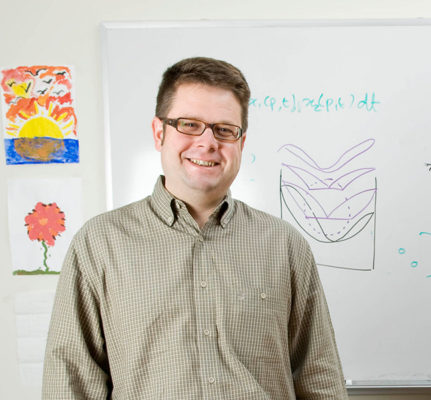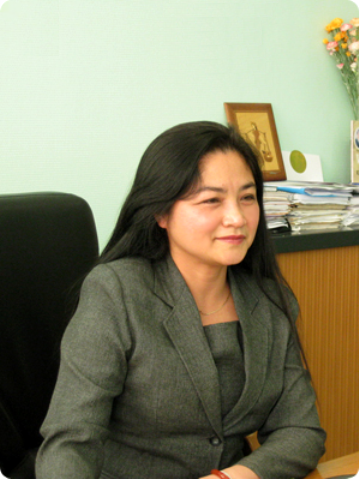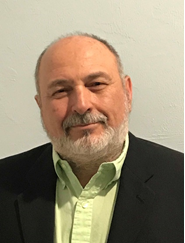
|
|
|
Plenary LecturesPlenary Lectures
Abstract: A variety of generalizations of the concept of the derivative to classes of continuous nondifferentiable functions have been proposed. Likewise, algorithms for nondifferentiable equation solving and optimization assume the ability to evaluate some element of a generalized derivative at points visited by the algorithm. However, not all generalized derivatives are equal in the sense that the particular generalized derivative element employed can have a large influence on the performance of algorithms. This leads to the notion of computationally relevant generalized derivatives. Until recently, it has not been possible to evaluate generalized derivative elements without an (often arduous) manual analysis of specific cases. Furthermore, in settings such as implicit functions, parametric ordinary differential equations and parametric optimization problems, results enabling the evaluation of concrete, computationally relevant generalized derivatives have not been available. This talk will discuss a number of new theoretical results and algorithms that lead to automatic methods for the evaluation of computationally relevant generalized derivatives in several settings. We will also outline important applications where these advances are having an enabling impact on simulation, sensitivity analysis and optimization.
Brief bio: Paul Barton is the Lammot du Pont Professor of Chemical Engineering and Director of the Process Systems Engineering Laboratory at MIT, where he has been since 1992. He received his Ph.D. from the Centre for Process Systems Engineering at Imperial College, London University in 1992. He has held Visiting Professor appointments at CNRS-ENSIC, Nancy, France and EPFL, Lausanne, Switzerland. He has industrial experience with BP and Air Products, and has consulted for major corporations including Dow Chemical, Alstom Power and Aspen Technology. He has received a number of awards, including the Computing in Chemical Engineering Award in 2011 and the Constantin Caratheodory Prize in Global Optimization in 2021. Barton's research interests include nonsmooth and hybrid dynamic systems; numerical analysis of ordinary differential, differential-algebraic and partial differential-algebraic equations; sensitivity analysis and automatic differentiation; global, mixed-integer and dynamic optimization theory and algorithms; and open process modeling software. Some of the applications his group has focused on include energy systems engineering, continuous pharmaceutical manufacturing, and quantitative engineering of microbial consortia. He served as Director for AIChE's CAST Division from 2001-2004 and is currently an associate editor for Journal of Global Optimization and Journal of Optimization Theory and Applications. He is author or co-author of over 200 articles in refereed journals. He has been very active in the design and the development of process modeling software, having been the original author of gPROMS, and having led the development of ABACUSS/JACOBIAN, DAEPACK and DFBAlab at MIT, all of which are now commercial products widely used in industry and academia.
Abstract: DC (Difference of Convex functions) programming and DCA (DC Algorithm) constitute a quite logical and natural extension from modern convex analysis/optimization to nonsmooth nonconvex analysis/optimization, broad enough to include most real-world nonconvex programs but not too wide in order to leverage the powerful arsenal of the former. This field was created in 1985 by Pham Dinh Tao in its preliminary state, then our intensive research has led to decisive developments since 1993, and has now become classic and increasingly popular worldwide. The popularity of DC programming and DCA resides in their richness, pervasiveness and deep mathematical foundations. Added to these are DCA's simplicity, flexibility, efficiency and scalability, its adaptation to specific structures of addressed problems. The construction of DCA depends on both equivalent formulations of a given DC program and DC decompositions of each corresponding formulated DC programs. As a DC function has infinitely many DC decompositions, there are infinitely many DCAs for each formulated DC program. As a result, DCA isn't "one" algorithm but the generic and principled algorithm based on the fundamental DC programming, say – an algorithmic philosophy in a way. This flexibility of DCA implies its universality: with appropriate DC decompositions and suitably equivalent DC reformulations, DCA recovers standard / recent methods in convex and nonconvex programming. For 35 years from their birthday, these theoretical and algorithmic tools have been greatly enriched, thanks to a lot of their applications, by researchers and practitioners in the world, to model and solve nonconvex programs from many fields of applied sciences including Data science, Communication systems, Biology, Finance, Transport Logistic, Supply chain management, etc, and remarkable successes have been reaped.
Brief bio: Prof. Le Thi Hoai An earned her PhD with Highest Distinction in Optimization in 1994, and her Habilitation in 1997 both from university of Rouen, France. From 1998 to 2003 she was Associate Professor in Applied Mathematics at the National Institute for Applied Sciences, Rouen, and from 2003 to 2012 she was Full Professor in Computer Science at the University of Paul Verlaine – Metz. Since 2012 she has been Full Professor exceptional class, University of Lorraine. She held the position of Director of the Theoretical and Applied Computer Science Lab of University of Paul Verlaine and then University of Lorraine from 2008 to 2017. She is the holder of the Knight in the Order of Academic Palms Award of French government in July 2013. She is nominated Senior Member of Academic Institute of France (IUF) in June 2021, and is awarded the 2021 Constantin Caratheodory Prize of the International Society of Global Optimization which is rewarded to outstanding fundamental contributions that have stood the test of time to theory, algorithms, and applications of global optimization. Her research interests include machine learning, optimization and operations research and their applications in information systems and various complex industrial systems. Prof. Le Thi Hoai An is the co-founder of DC programming and DCA, powerful tools of non-convex programming and global optimization which were introduced by Prof Pham Dinh Tao in 1985 and intensively developed in their joint works since 1994. These theoretical and algorithmic tools, becoming now classic and increasingly popular, have been successfully applied by researchers and practitioners all the world over to model and solve their real-world problems in various fields. Prof. Le Thi Hoai An is the author/co-author of more than 260 journal articles, international conference papers and book chapters, the co-editor of 24 books and/or special issues of international journals, and supervisor of 32 PhD theses. She is also Chair of Scientific Committee, Chair of Organizing Committee, and member of Scientific Committee of numerous International Conferences, and leader of several regional/ national/international projects. She made rich international collaborations with more than 40 universities and institutes not only in Europe but North America, Africa and Asia, and is the leader of several great joint projects in Industry 4.0 framework with Big companies in France including RTE (the manager of the public electricity network of France), Naval Group (the leader European in naval defense).
Abstract: Artificial Intelligence (along with data sciences and optimization) has been a fundamental component of many activities in economics and finance in recent years. In this lecture we first summarize some of the major impacts of AI tools in economics and finance and discuss future developments and limitations. In the second part of the talk we present details on neural network embeddings on corporate annual filings for portfolio selection.
Brief bio: Dr. Panos Pardalos is a Distinguished Professor in the Department of Industrial and Systems Engineering at the University of Florida, and an affiliated faculty of Biomedical Engineering and Computer Science & Information & Engineering departments. In addition, he is the director of the Center for Applied Optimization.
Panos Pardalos has lectured and given invited keynote addresses worldwide in countries including |
| Online user: 2 | Privacy | Accessibility |

|




